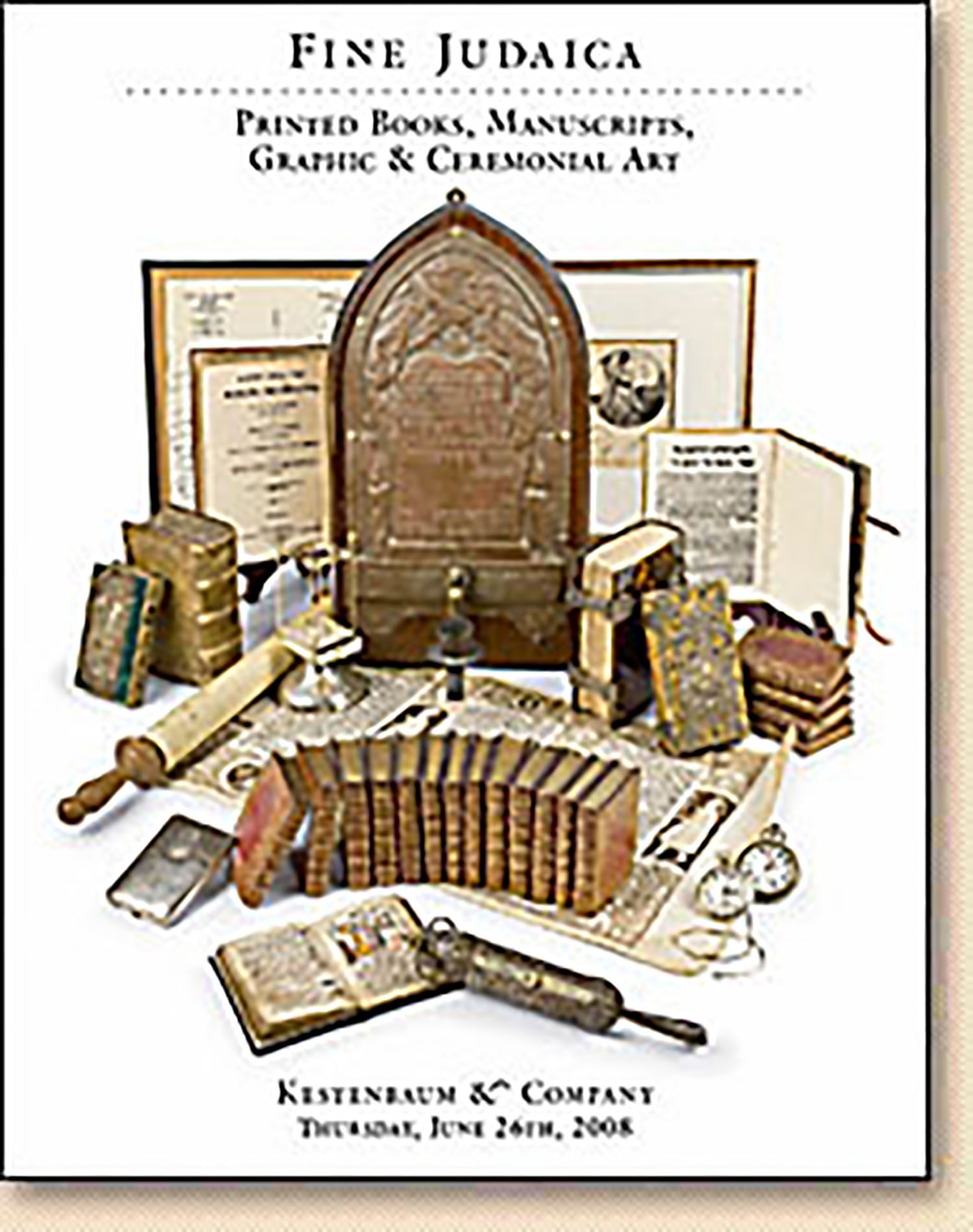NOAH, M(ORDECAI) M(ANUEL). Discourse on the Restoration of the Jews, Delivered at the Tabernacle, Oct. 28 and Dec. 2, 1844.

AUCTION 40 |
Thursday, June 26th,
2008 at 1:00
Fine Judaica: Printed Books, Manuscripts, Autograph Letters, Graphic & Ceremonial Art
Lot 10
(AMERICAN JUDAICA).
NOAH, M(ORDECAI) M(ANUEL). Discourse on the Restoration of the Jews, Delivered at the Tabernacle, Oct. 28 and Dec. 2, 1844.
New York: Harper & Brothers 1845
Est: $2,000 - $3,000
PRICE REALIZED $3,250
A PIONEERING WORK PROPAGATING THE ZIONIST IDEA FIFTEEN YEARS BEFORE THE BIRTH OF THEODOR HERZL.
Mordecai Manuel Noah proposes that if the Ottoman Sultan would grant permission for Jews to purchase land in Palestine, then"the whole territory surrounding Jerusalem including Hebron, Safat, Tyre…Beyroot, Jaffa and other ports of the Mediterranean will be occupied by enterprising Jews" (pp. 37-38). He appealed to American Christians: “But, my friends, why not ask yourselves the great and cardinal question, whether it is not your duty to aid in restoring the Chosen People as Jews to their Promised Land?” (p. 28). “Where, I ask, can we commence this great work of regeneration with a better prospect of success than in a free country and a liberal government? Where can we plead the cause of independence for the children of Israel with greater confidence than in the cradle of American liberty?” (p. 10).
Mordecai Manuel Noah (1785-1851) was probably the most influential Jew in the United States in the early nineteenth century. In this Discourse, he cites letters he received from President John Adams and"the illustrious author of the Declaration of Independence," Thomas Jefferson (see preface pp. v-vi.)
Noah’s involvement in Jewish affairs was inspired by his belief in the idea of Jewish territorial restoration. He was active in Jewish affairs on behalf of the congregations of Mikveh Israel in Philadelphia and Shearith Israel in New York. See EJ, XII, cols. 1198-9 and L. M. Friedman, Pilgrims in a New Land (1948) pp. 240-7.
